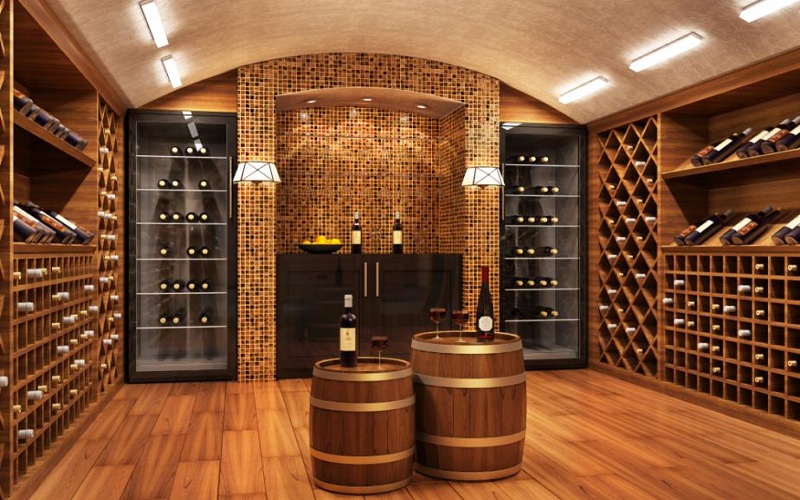Your own walk-in wine cellar – a dream come true. But before you start stocking those shelves with precious bottles, there’s the crucial task of organization. A well-organized cellar isn’t just about aesthetics; it ensures your wines age gracefully and are readily accessible when you crave a perfect sip. Here’s your ultimate guide to organizing your walk in wine cellar for large wine collections for 2024:
Shelving and Storage Solutions
- Choosing the Right Racks: Sturdy, well-designed shelving is the backbone of your cellar. Opt for natural materials like wood or bamboo for breathability and a classic look. Wire or metal racks offer a more modern aesthetic and easy visibility. Consider a mix depending on your taste and storage needs.
- Space Optimization: Walk-in cellars come in all shapes and sizes. Utilize every inch of space with a combination of floor-to-ceiling shelving, wall-mounted hanging racks for showcasing special bottles, and even creative solutions like diagonal corner racks.
- Labeling Matters: Invest in clear, durable labels for your wine bottles. Include details like grape varietal, vintage year, and even tasting notes for easy identification and future reference. Consider digital labeling systems for a sleek, tech-savvy approach.
Strategies for Wine Classification
There are several ways to organize your wine collection, each with its own advantages:
- By Varietal: Group similar grape varieties (e.g., Cabernet Sauvignon, Chardonnay) together for easy browsing and pairing with meals.
- By Vintage Year: Arrange bottles chronologically by vintage year, allowing you to track your collection’s development and prioritize older wines.
- By Region: Organize geographically, grouping wines by their country or region of origin (e.g., Bordeaux, Napa Valley) for a geographical exploration.
- By Occasion: Designate specific sections for special occasion wines or everyday drinking options, making it easier to grab the perfect bottle for the moment.
- A Combination Approach: Many collectors use a blend of these methods. Perhaps you categorize by varietal within each vintage year or organize by region with a separate section for sparkling wines.
Ensuring Easy Retrieval
Organization isn’t just about how you categorize; it’s also about ease of access. Here are some tips:
- Prioritize Accessibility: Frequently accessed wines should be stored at eye level or within easy reach. Place everyday wines on lower shelves for convenient grabbing, and reserve higher shelves for less frequently enjoyed bottles.
- The Golden Rule of Rotation: Practice “first-in, first-out” by placing new bottles in the back and moving older ones forward for easier access and ensuring you drink them at their peak.
Creating the Perfect Environment
- Temperature is King: Maintain a consistent cool temperature between 55°F and 58°F (12.8°C to 14.4°C) for optimal wine aging.
- Humidity Matters: Aim for a humidity level between 55% and 75% to prevent corks from drying out and letting air in. Invest in a hygrometer to monitor humidity levels.
- Light Control: Minimize light exposure to prevent wine degradation. Opt for low-wattage, incandescent bulbs or recessed lighting with UV filters.
Modern Touches for the 2024 Cellar
- Smart Storage Solutions: Consider incorporating climate-controlled wine cabinets for specific storage needs or high-value bottles.
- Inventory Management Apps: Utilize cellar management apps to digitally track your collection, including purchase details, tasting notes, and aging recommendations.
Final Thoughts
By following these tips and tailoring the organization to your specific needs and preferences, you can transform your walk-in wine cellar into a haven of well-maintained wines, readily accessible for enjoyment. So, raise a glass (or two) to your organizational skills, and get ready to experience your wine collection in a whole new light!

